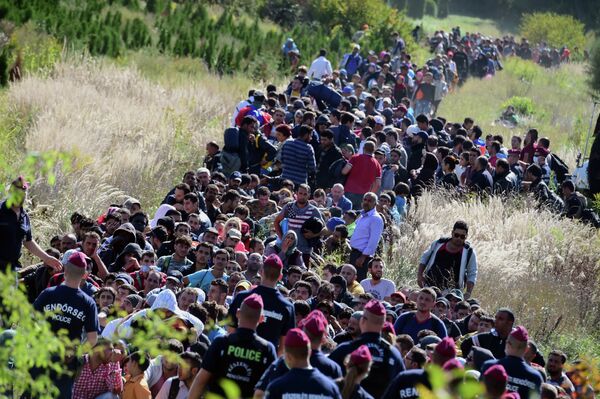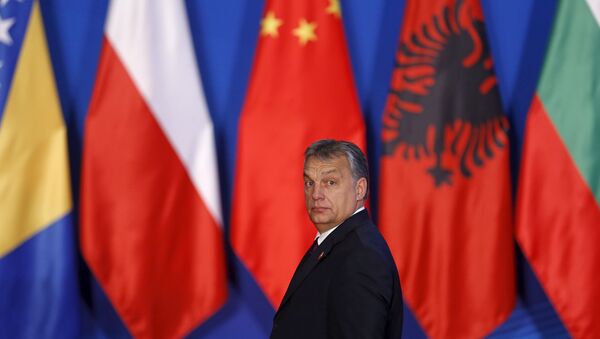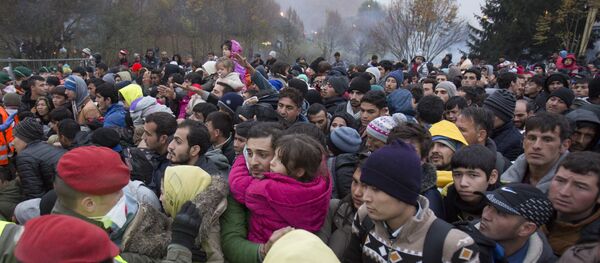The Hungarian PM has been a strong opponent of calls for a EU quota system to relocate refugees arriving in Europe to each member state under a formula based on population and economic factors.
Hungary has joined Slovakia in taking the EU to the European Court of Justice in Luxembourg over the proposed mandatory quota mechanism which would see Hungary forced to admit 2,300 and Slovakia 800 refugees.
"The continent looks like a battlefield and the worse is yet to come. How many more will hit the road, heading for Europe? I believe it's millions, or tens of millions," Orban told his party's conference."
He said the bloc was being "invaded" by migrants:
"We will protect our borders (and) Hungarian people from criminals, terrorists (and) illegal immigrants."
He also took a swipe at some of the pillars of the EU, saying there needed to be a return to common sense and national pride. "[Europe and] its people today believe in superficial and secondary things: in human rights, progress, openness, new kinds of families, tolerance," Orban said. "These are nice and sweet things, but essentially, they are secondary," he told the conference.

Hungary built a 175-km (109M) razor-wire fence along its border with Serbia and then built another 40-km (25M) razor-wire fence along its border with Croatia before announcing in October 2015 that it would completely close off its border with Croatia to migrants.
Only 200 Relocated Out of 160,000
There is a deep division within Europe over the refugee crisis, with some countries blaming Germany and Sweden for having precipitated the mass movement of people by declaring their door open to refugees from Syria and other war-torn countries.
In mid-November, the European Commission conceded: "The measures proposed by the Commission and adopted by the Council [in September] to relocate 160,000 people in clear need of international protection will allow for a significant, if partial, reduction of the pressure on the most affected Member States."
However, it conceded that — so far — only just under 200 people have been relocated under the scheme, with many member states either refusing to take them in, or slowing down the process of admitting them.




